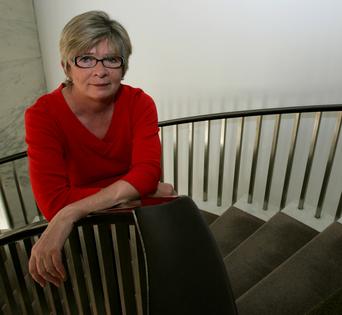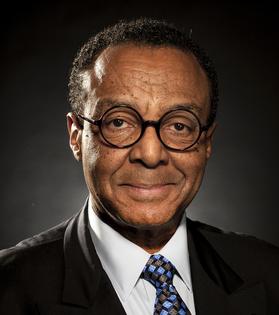Barbara Ehrenreich Revealed the Grim Side of Prosperity
Barbara Ehrenreich told us about “essential workers” before it was cool.
In more than 20 books and numerous articles and essays, she earned a reputation as a self-described “myth buster,” although her titles sometimes sounded more like a buzz-killer.
In 1989′s “Fear of Falling: The Inner Life of the Middle Class,” she examined the middle-class insecurities that led voters to turn to the political right in the century’s final decades.
In 2005′s “Bait and Switch: The (Futile) Pursuit of the American Dream,” she explored white-collar unemployment through the eyes of those who were falling behind while trying to get ahead.
In her 2009 book “Bright-sided: How Positive Thinking Is Undermining America,” she took on the idea that everyone can pull themselves up by their own bootstraps without falling on their face.
Yet, she tried mightily to maintain a wry sense of humor in her tough-minded commentary. “After all, I wrote a book about joy,” she once insisted. “I’m not a sourpuss.”
Indeed, in stark contrast to her earlier “Blood Rites,” about the roots of humanity’s attraction to war, she lightened up with a stunningly optimistic work, “Dancing in the Streets: A History of Collective Joy,” about our relentless pursuit of communal happiness.
But Ehrenreich, who died Thursday at age 81 in an Alexandria, Virginia, hospice center after a recent stroke, undoubtedly is best known for 2001′s “Nickel and Dimed: On (Not) Getting By in America.”
It is a book that grew out of a conversation and had a profound impact on the national conversation.
As her New York Times obituary recounts, the book grew out of a conversation she was having over lunch with Lewis Lapham, then editor of Harper’s Magazine, about socioeconomic class.
Some enterprising journalist, she mused, should take a close-up look at a question under everyone’s nose: How does anyone manage to live, let alone raise a family, on minimum wage?
Good question, Lapham agreed, and immediately suggested that she should do it herself.
But how? Coverage of low-income Americans too often runs up against what already was being called “compassion fatigue.”
To dodge that hazard, Ehrenreich decided to go deep — like writer Upton Sinclair, whose undercover reporting in the Chicago stockyards led to reforms and his bestselling novel “The Jungle.”
Or Nellie Bly, born Elizabeth Jane Cochran, who worked undercover to expose abuses in a New York mental institution in the late 1880s.
In similar fashion, Ehrenreich worked minimum-wage jobs around the country as a waitress, hotel maid, cleaning woman and Walmart clerk, averaging about $7 an hour.
Her life became a constant struggle of making ends meet, living paycheck to paycheck and sometimes falling short in trailer parks and rundown residential motels.
Since I grew up in a working-class, factory-town family, little of the conditions she ran into struck me as new. My father was a factory worker and my mother was a cook. I, too, worked odd jobs. But since my day, the economics have changed, college is more expensive and, for younger generations, the American dream seems further off.
Upward mobility, the American dream as I knew it, has declined tragically since the early 1980s and the price of education and training after high school has greatly increased.
Perhaps most striking, Ehrenreich observed, a single low-wage job is often not enough to support one person, let alone a family.
Author and liberal evangelical theologian Jim Wallis has preached about the struggles of the low-income “Burger King mom” in whom neither party takes enough interest.
And their struggles are only getting worse, except perhaps for the relief offered by whatever legislation can make it through gridlocked Washington.
But Ehrenreich leaves a powerful legacy in her writings and actions, which include founding the Economic Hardship Reporting Project, which funds and co-publishes independent journalists covering economic hardship issues in her tradition.
In a way, Ehrenreich thought all workers are “essential.” Despite all the bad news in the world, Ehrenreich cautioned young progressive-minded journalists and activists to avoid becoming too pessimistic. Ultimately, we all need to find ways to work together, she said, no matter how challenging that may seem to be.
========
(E-mail Clarence Page at cpage@chicagotribune.com.)
©2022 Clarence Page. Distributed by Tribune Content Agency, LLC.
(c) 2022 CLARENCE PAGE DISTRIBUTED BY TRIBUNE MEDIA SERVICES, INC.










